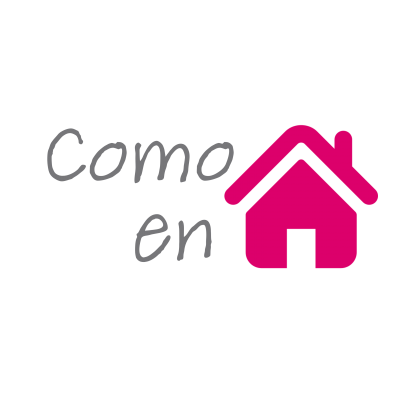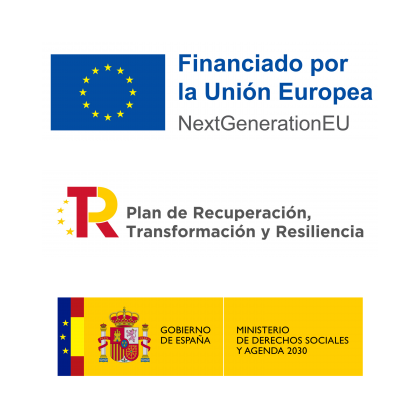- The project will advance the transformation of residential services from an "institutional" model to a "home" model, from a comprehensive and systemic community perspective.
- The model will be implemented in the Basque Country and Asturias.
- Approved by Royal Decree 1101/2021 of December 10, the project has a total amount of 5,473,600 euros, financed by the Ministry of Social Rights and Agenda 2030 in the framework of the Recovery, Transformation and Resilience Plan of the Government of Spain and the Next Generation EU funds of the European Union.
Donostia - San Sebastian (08/04/2022) Since last January Matia and Matia Instituto are leading the project "As at home- towards the provision of person-centered supports", aimed at modernizing and improving social services and models of support and care for elderly people with long-term care needs, who are institutionalized or at risk of being institutionalized.
Experience and scientific evidence confirm the need to move towards a model of long-term care that transcends traditional, highly institutionalized approaches and incorporates the community sector and society in general, reclaiming territories and cities of care as a core element in the sustainability of life and the construction of balanced, humanized and egalitarian societies.
From this perspective, the project "As at home" aims to improve the welfare of people living in residential centers in Asturias and Euskadi, advancing from their perspective and subjective experience, in the generation of accommodation that, centered on people, allow the continuity of the individual life project of those who need support, with full respect for their rights.
More specifically, the aim is to advance in the definition of a model of good care that, from the perspective of its protagonists, orients in a comprehensive manner and from each of its axes or dimensions the transformation of the current model of residential care.
The project will generate relevant knowledge in relation to issues of great importance in the context of progress in which we find ourselves, related to aspects of good treatment in daily life, environments and significant environments, key organizational aspects and organizational culture.
Likewise, the integration of residential centers in the community and their value as a relevant service in the support of home care, supporting the prevention of unwanted institutionalization, will be worked on. The proposed research methodology, eminently participatory in nature, will allow co-creating solutions according to the reality of each center and territory, which will be evaluated to generate evidence to support progress towards people-centered solutions and contribute to the development of public policies related to models of care and support for the elderly in situations of special vulnerability.
"Como en casa" is configured from an innovative perspective in the understanding and articulation of long-term care, betting on a new model of Governance, characterized by its ecosystemic, holistic, territorialized and community-based approach, which integrates all the support and care available in a specific environment: families, social and health services, voluntary action, local commerce, temporary or permanent care accommodation and any other support that, coming from the community environment, can promote autonomy and good care for people, wherever they are.
Como en casa
The "Como en casa" project is divided into ten interrelated work packages. First, a proposal for a guiding model of good care will be co-created based on people's preferences, available evidence and the lessons learned by the project team in processes of transformation of the residential care model.
In the first section of the model, the dimension related to good care, personalization and meaningful life, the aspects relevant to people that define good care in care settings will be reviewed and validated in a participatory manner. During this process, teams will be trained using reflective methodologies and accompanying them in the process of transforming current professional practices towards others based on rights and good treatment in daily life. The adaptation of environments and environments for a meaningful life will be another axis of action of the model, in which the participatory review of relevant elements in relation to the design of the physical space will be the starting point to achieve personalized and meaningful environments that protect people's privacy and promote relationships inside and outside the living unit.
The organizational dimension will contemplate the analysis and implementation in relation to key organizational elements such as; adequate ratios of professionals, identification of competencies and professional roles and number and characteristics of users, among other issues, trying to answer questions of great interest at a time when a profound change of residential centers towards people-centered environments is being addressed. This will require the generation of a shared organizational culture among all the actors present in the centers. As another relevant work axis, the interrelation between the centers and the community will be addressed, as part of the same and as an entity that contributes value beyond the physical limits of the residences, actively contributing to the objective of preventing undesired institutionalization processes.
All these actions will be evaluated internally and externally, using various methodologies and techniques, with the aim of defining the transformation model resulting from the project, to know its impact on the welfare of people involved in care and to generate robust knowledge to guide public policies that drive change.
Throughout these months of the project, Matia has been working to define the model that will guide the actions to be carried out in the residential centers, which will be defined in detail throughout the project.
In addition, a virtual meeting was held on March 28, which will be enriched throughout the project.
.png)


